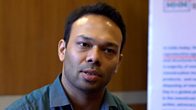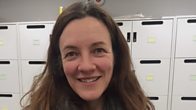Authors
-
"You runaway": the challenges of research in South Sudan
Writing from Juba, Research Manager Trish Doherty explains the importance of conducting research in a conflict-affected country like South Sudan – despite the very real risks for both researchers and the people they speak to.
-
The case for adaptive programming
India Country Priyanka Dutt discusses Majboor Kisko Bola! (Who are you calling helpless?), a project to prevent bonded labour, and what it taught her about her adaptive programming.
-
Helping people spot fake news in Sierra Leone
Our Sierra Leone Country Director shares insights from our work to increase media literacy during national elections earlier this year.
-
Five ways to tackle information disorder – learnings from Indonesia
The spread of information which is false or misleading – whether by word-of-mouth, media, or otherwise – is an age-old phenomenon. Yet advances in technology and increasing access to both traditional and social media are propelling the spread of false information at a speed and scale not seen b...
-
Three ways of communicating to stop disasters happening
Ahead of the Global Platform for Disaster Risk Reduction conference, UN Special Representative Dr Robert Glasser outlines three ways that media and communication can lay the groundwork for warning people about disasters before they happen.
-
Five thought-provoking sessions to attend at the SBCC Summit 2018.
Five sessions not to be missed at the 2018 International Social and Behaviour Change Communication Summit in Nusa Dua, Indonesia
-
How can media inspire accountability and political participation? Findings from massive �������� programme.
Duncan Green, Senior Strategic Advisor for Oxfam GB, shares his key takeaways from our Governance and Accountability event.
-
On the front lines of the climate emergency, information is a critical defence
As the world marks World Environment Day on the 5th June, Sarah Hall (Regional Director, Asia) talks about Earth's climate emergency and what �������� Media Action are doing to support our communities who are already experiencing increasing and increasingly powerful droughts, flooding and extreme wea...
-
How can humanitarian broadcasting help support recovery from crises?
Theo Hannides outlines the challenges of conducting research during an emergency and explores the relative merits of local and mass media, referencing responses to the Nepal earthquakes, Ebola epidemic, Syrian refugee crisis and the 2014 crisis in Gaza.
-
Using storytelling to make statistics accessible
Bangladesh-based researcher Mahmuda Hoque explains how her team created a story about “Maya”, a 19-year-old mother, to help bring their findings about antenatal preparations to life.
-
How can media help people in Bangladesh prepare for disasters?
Our analysis enabled us to understand better what helps - and what stops - people acting to protect themselves against natural disasters and extreme weather events.
-
How do media in Bangladesh understand gender sensitivity?
In this third in a series of three articles, Bangla Tribune Special Correspondent Udisa Islam examines the state of gender equality in Bangladesh's media.
-
Theory to practice: our work in gender transformative programming
Our gender advisors delve into the theory and research informing our programming and explores what that really means in practice for women and girls.
-
Saving journalism will require money, organisation - and legitimacy
The theme of this year’s World Press Freedom Conference was “Journalism without fear or favour.” However, the grim reality of the COVID-19 crisis means that many countries around the world may be facing a future with no independent journalism at all. An international Fund may provide a solution.
-
Designing for inclusion: From invisible to #Invaluables
Bengaluru, India’s Silicon Valley, generates 5,757 metric tonnes of solid waste per day, much of it recycled by informal waste pickers. Our Pathway to Respect, Identity, Dignity and Empowerment (PRIDE) project aims to connect them with the community for greater respect and dignity.
-
The power of research: our work with WHO during the pandemic in Africa
Last year we were commissioned by World Health Organization to develop a data collection tool, enabling them to collect timely insights into people’s changing needs for a more effective COVID-19 response. Read about what we learned.
-
Let’s talk about sex: using radio to educate teenagers in Bangladesh
How radio has helped adolescents in Bangladesh learn about sexual and reproductive health, as well as child marriage.
-
Using noodles and Granny's biscuit tin to address climate change in Indonesia
Our Indonesia project 'Return to the Forest' aims to engage young people on issues of green growth and climate change. We’ve found that the best way to reach them is with aspects of everyday life that young people can easily relate to - read to find out how.
-
What matters? The Rohingya crisis, one year on.
How we're working to find out what matters most for Rohingya refugees living in camps in Cox’s Bazar and helping to improve the international response.
-
The art of designing surveys about social norms: insights from Ethiopia
What are the challenges in researching social norms with surveys and how do you overcome them? Hilina Assefa and Lois Aspinall offer some solutions, drawing on five responses commonly heard in the field in Ethiopia.



















